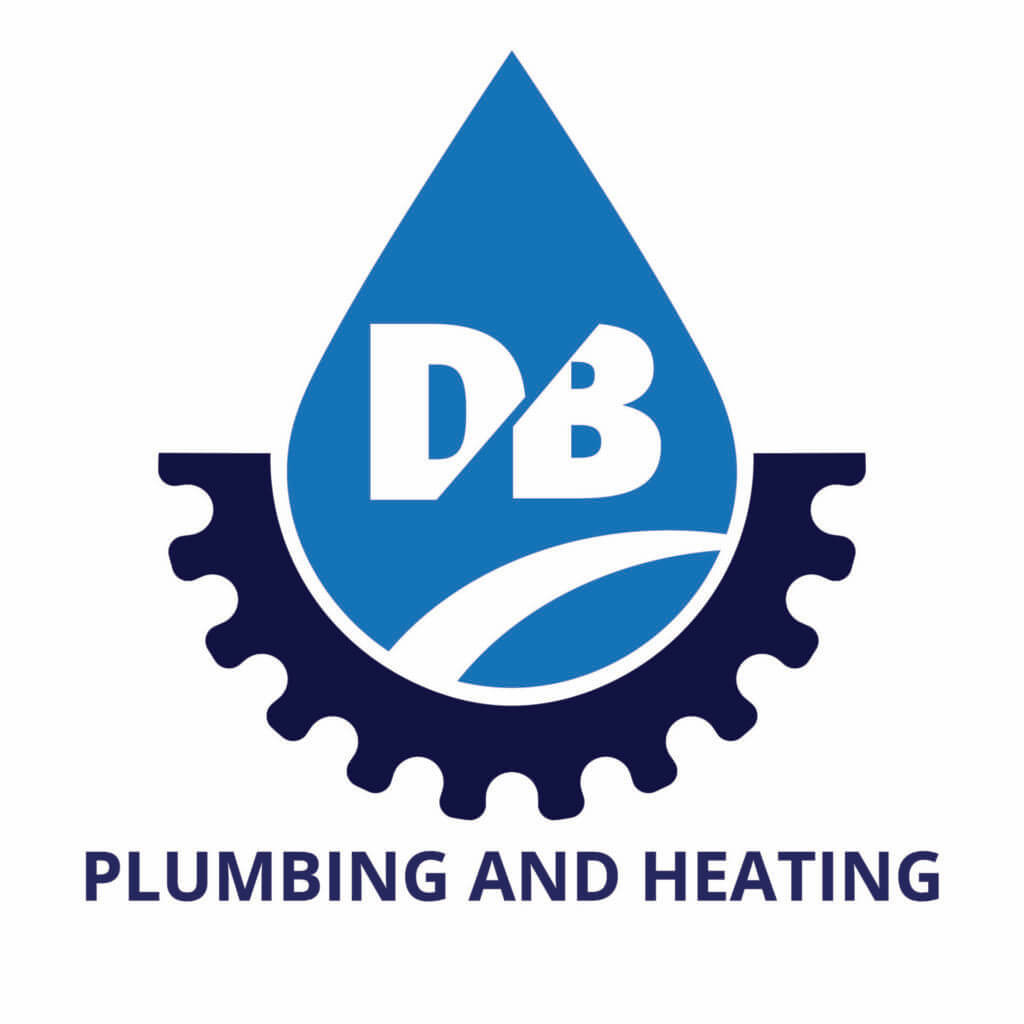Emergency Services - Open 24/7
Located In Nutley, NJ
Welcome to our comprehensive blog on essential plumbing repair tips! Whether you're new to homeownership or have been taking care of your house for a while, knowing about your plumbing system and handling common plumbing problems can greatly improve your home's comfort and peace of mind.
Plumbing may not be an entertaining topic, but it is important to our daily lives. This provides us with clean water, proper sanitation, and a functioning hot water supply. Taking care of your plumbing system isn't just about fixing leaks and clogs. It's about protecting your investment, saving money on costly repairs, and ensuring the comfort and functionality of your living space.
Plumbing problems can be frustrating and disruptive, but you're not alone in facing them. Throughout this blog, we'll walk you through the ins and outs of your plumbing system, how to identify early signs of trouble, and preventive measures to avoid major issues.
From fixing common problems like leaky faucets and running toilets to handling more complex issues like burst pipes and sewer line blockages, we'll provide step-by-step guidance and DIY techniques to empower you as a capable homeowner.
Our goal is to equip you with the knowledge and confidence to handle plumbing repairs like a pro. We'll explore the essential tools every homeowner should have, the importance of regular maintenance, and when it's best to call in professional help.
Additionally, we'll delve into eco-friendly plumbing practices that benefit both your home and the environment. So, let's embark on this journey together, turning your plumbing woes into moments of triumph and keeping your home a cozy haven for years to come!
Read on for practical tips and tricks that will transform your plumbing experience.
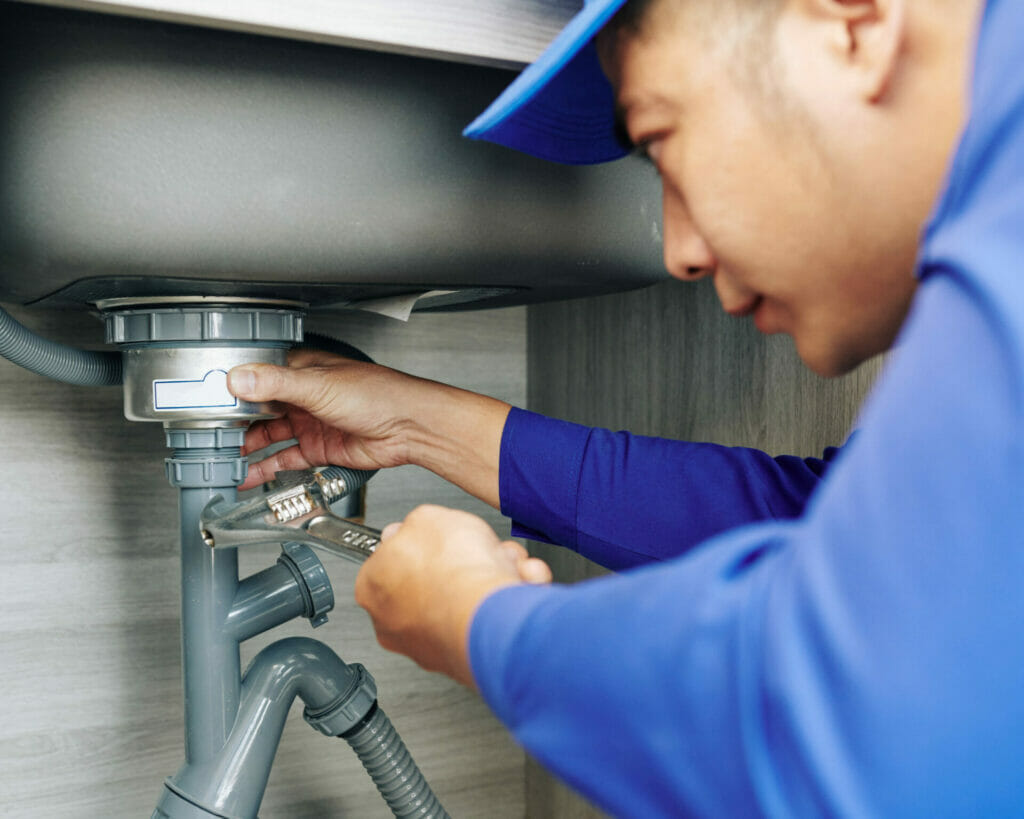
Alright, let's dive into the fascinating world of plumbing systems! Understanding how your home's plumbing works is like getting to know the heart and soul of your home. Don't worry; we'll keep things simple and jargon-free as we explore the ins and outs of residential plumbing.
Your residential plumbing system is like a network of pipes and fixtures working together to bring water in and take waste out of your home. It's pretty amazing how it all functions seamlessly behind the scenes! In most homes, you'll find two separate plumbing systems: one for freshwater supply and the other for wastewater disposal.
The freshwater system delivers clean water from the main water line to various faucets, showers, and appliances. On the other hand, the wastewater system collects and carries used water and waste away to be treated and recycled.
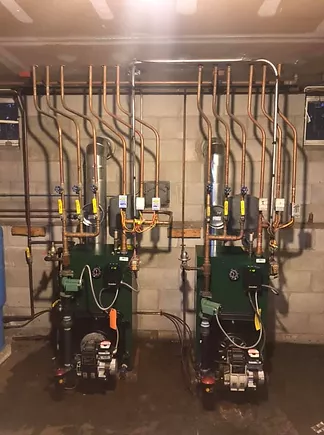
Now, let's get to know the stars of the show – the main components of your plumbing system. First up, you have the water supply line, which connects your home to the municipal water source. It's like the lifeline delivering water for all your daily needs. Then, there are the pipes running throughout your walls and floors, transporting water to different parts of the house. You'll find various fixtures like sinks, toilets, showers, and bathtubs, each serving a specific purpose in your daily routines. And let's not forget the essential drainage system, which carries wastewater away safely and efficiently.
Now, here's the real magic: how your plumbing system works to keep your home cozy and comfortable. Imagine waking up in the morning and having a refreshing shower thanks to your water supply line bringing in that lovely warm water. The plumbing system allows you to wash dishes, do laundry, and enjoy a hot cup of tea without any hassle.
But the significance of a well-maintained plumbing system goes beyond just convenience. It's also about maintaining a healthy and hygienic living environment. The proper disposal of wastewater ensures that you and your family stay safe from harmful contaminants.
Plus, fixing leaks and addressing plumbing issues promptly will prevent water damage, mold growth, and costly repairs down the road. So, taking care of your plumbing is not only about functionality but also about creating a comfortable and stress-free space for you and your loved ones to enjoy.
Time to tackle the all-important task of early detection and prevention when it comes to your plumbing! Just like a regular health checkup keeps you in top shape, your plumbing system also needs some TLC to avoid big troubles later on.
Let's explore why regular plumbing inspections are a must, how to spot those sneaky early signs of problems, and some easy-peasy preventive measures you can take to keep your plumbing in tip-top condition.
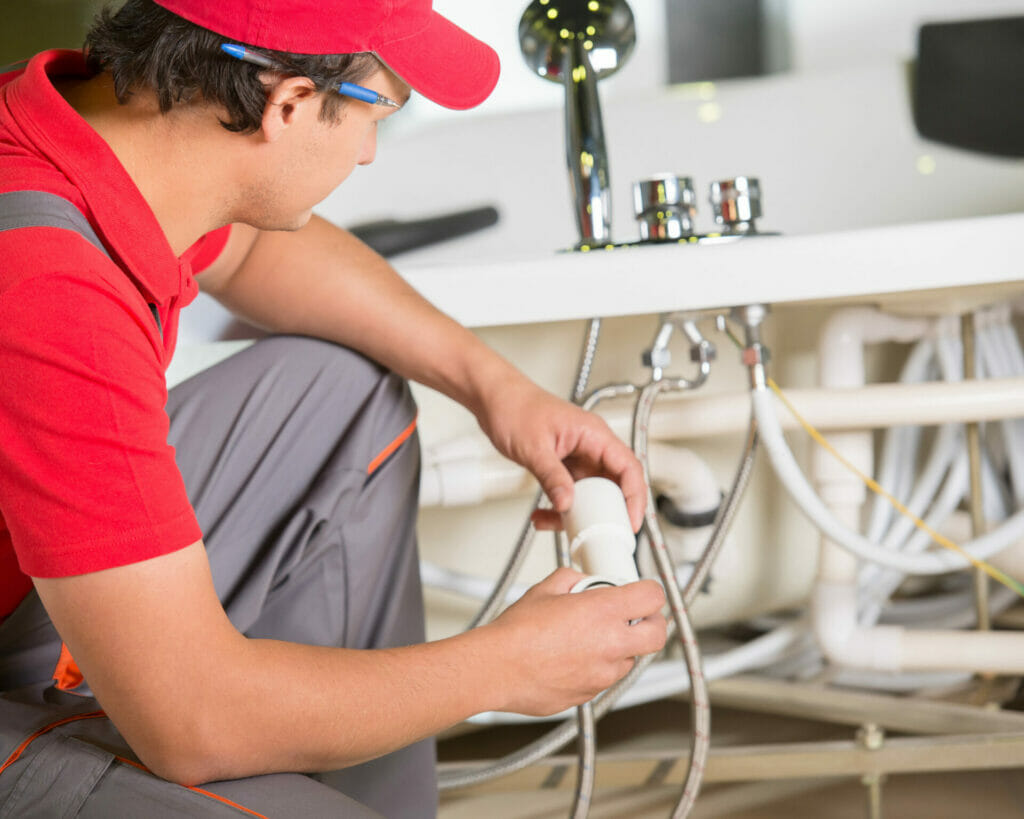
Think of plumbing inspections as a way to catch issues before they snowball into full-blown disasters. It's like having a superhero plumber swoop in and save the day! Getting a professional to inspect your plumbing at least once a year can reveal hidden problems you might not even be aware of.
Small leaks, tiny cracks, or loose fittings – they can all cause trouble over time if left unchecked. By spotting these issues early on you can nip them in the bud and save yourself from major headaches or costly repairs down the line.
Now, don your detective hat and be on the lookout for those subtle hints that your plumbing might be acting up. Do you hear the sound of dripping water when everything should be quiet? Is there a mysterious puddle forming under your sink?
These could be red flags waving at you! Keep an eye out for changes in water pressure, slow drainage, or unusually high water bills, as these could be signs of hidden problems. Don't worry; we'll show you how to play Sherlock and investigate these clues further.
Prevention is better than cure, and that's true for your plumbing too! There are some easy measures you can take to keep your plumbing in good condition. For starters, be mindful of what you're putting down your drains – avoid pouring grease, hair, or other debris that could cause clogs. Give your pipes some love by using drain covers and cleaning them regularly.
And here's a golden nugget: know where your main water shut-off valve is. This is so you can quickly turn off the water in case of emergencies.
Remember, a little attention and care go a long way in keeping your plumbing system in ship-shaped condition. So, don't wait for a plumbing catastrophe to strike; be proactive and take these early detection and prevention steps to ensure a cozy and stress-free home environment.
Now, let's discuss some of the most common plumbing problems! Don't worry; that’ll be your trusty guide through the maze of leaky faucets, running toilets, and pesky clogs. With some DIY magic, you can fix these issues and restore harmony to your home.
Ah, the annoying drip-drip sound that won't let you sleep – we've all been there! Relax, fixing a leaky faucet is easier than you might think.
First, gather some basic tools like an adjustable wrench and screwdriver. Then, it's a matter of turning off the water supply, disassembling the faucet, and replacing the faulty parts. It's like giving your faucet a little spa treatment!
Before you know it that pesky leak will be gone and you'll be enjoying the sweet sound of silence once more.
Now, let's move on to that running toilet. You might be surprised that this common problem is often caused by a faulty flapper or a worn-out fill valve.
You'll need to turn off the water supply. Then, take a look inside the tank just like with a leaky faucet. Adjusting or replacing the flapper and fill valve can usually put a stop to that running water and save you from wasting precious H2O and money on your water bill.
Clogged drains can be a real headache. But don't panic – we've got some DIY tricks for you! Before reaching for harsh chemicals try using a plunger or a plumbing snake to dislodge the blockage gently. For kitchen sinks, a mixture of baking soda and vinegar can work wonders to break up the gunk. But remember, not all clogs are created equal. There might come a time when you need to call in the cavalry – that's where a professional plumber can save the day!
By now, you're on your way to becoming a plumbing hero in your home! Remember, with a little confidence and the right knowledge, you can conquer these common plumbing problems like a pro. So, why wait? Let's get those faucets fixed, toilets running smoothly, and drains flowing freely!
Alright, now we're getting into the more challenging territory of plumbing – those complex issues that can make any homeowner break into a sweat! But fear not, because we’re here to guide you through handling burst pipes, troubleshooting water heater problems, and dealing with sewer line blockages like a seasoned pro.
A burst pipe can quickly turn your home into a mini swimming pool, acting fast is crucial! The first step is to shut off the main water supply. This will prevent further flooding. Once you've stopped the water flow, open all faucets to drain any remaining water from the pipes. Grab a bucket and towels to start soaking up the water – you'll want to prevent as much damage as possible. Now, don't be shy about calling a licensed plumber for help; they'll fix that burst pipe and make sure your home stays dry and cozy again.
Is your morning shower feeling more like a surprise icy plunge? Water heater problems can be a real bummer, but let's troubleshoot together! First, check if the pilot light is on and relight it if necessary. If the issue isn’t solved, make sure the thermostat is set correctly. Also, check if it hasn't accidentally been turned down. Sediment buildup can also cause water heater woes, so draining the tank and flushing out the gunk might do the trick. Remember, regular maintenance, like checking the pressure relief valve and inspecting for leaks, can keep your water heater in top shape and provide you with cozy showers all year round.
Ah, sewer line blockages – the stuff of nightmares! If there are gurgling sounds from drains, water backing up in strange places, or bad odors in your home, it might mean your sewer line is blocked. The culprits are often tree roots, debris, or grease buildup in the pipes. Using a plunger is one case where DIY efforts can do more harm than good. It's time to call in the professionals! A licensed plumber armed with specialized equipment, like a sewer snake or hydro-jetting system, can safely clear those stubborn blockages and restore your plumbing system to its former glory.
Handling more complex plumbing issues might seem daunting but with a clear plan and the right help you can tackle them head-on. Remember, immediate action for burst pipes, troubleshooting tips for water heater problems, and professional assistance for sewer line blockages will keep your home safe and sound. Don't forget, you're not alone on this plumbing adventure.
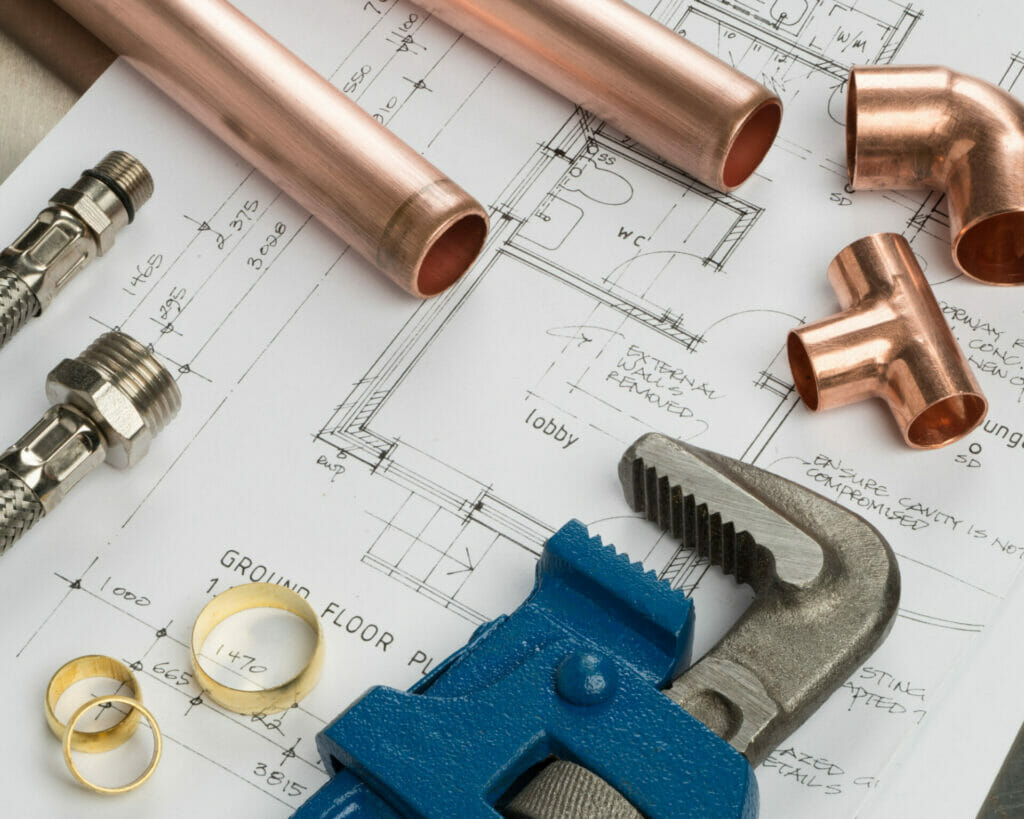
Let's talk about the handy tools every homeowner should have in their arsenal when it comes to plumbing repairs! You don't need a massive toolbox; just a few essential plumbing tools can make a world of difference in fixing those annoying leaks and clogs. So, let's get you equipped like a pro with the right gear.
First up, every homeowner should have a good old adjustable wrench. This trusty tool can help you tighten or loosen nuts and bolts making it perfect for fixing leaky faucets and pipes. Next, don't forget about a screwdriver set – both flat-head and Phillips – as it'll come in handy for removing screws from fixtures or pipes.
A plunger is a must-have for unclogging toilets and drains – trust us, you'll thank yourself for having one when that clog strikes. And here's a pro tip: a pipe wrench is a game-changer for tackling those tough-to-reach fittings and tight spaces. With these essential plumbing tools in your arsenal, you'll be well-prepared for basic repairs around the house.
Now that you know the must-have plumbing tools, it's time to build your very own plumbing repair toolkit. Start with a sturdy toolbox that can house all your gear in one place – no more searching for tools all over the house! Include a mini tube of pipe thread sealant or Teflon tape to prevent leaks in threaded connections.
A plumbing snake is another excellent addition for dealing with stubborn clogs that your plunger can't handle. To tackle those faucet repairs like a pro, grab a faucet repair kit containing washers, O-rings, and other essential parts. Having a well-organized plumbing repair toolkit will save you time and headaches when a plumbing issue arises.
Alright, safety first folks! Plumbing repairs might not involve heavy machinery, but there are still some precautions to keep in mind. Whenever you're using tools wear protective gear like gloves and safety goggles to shield yourself from potential mishaps.
Before starting any repair make sure to turn off the water supply to the affected area to prevent any surprises. Take your time and be patient – rushing through a repair can lead to mistakes and more problems down the road. And remember, when in doubt or facing a more complex issue, don't hesitate to call in a licensed plumber. They have the expertise and knowledge to handle any plumbing challenge safely and efficiently.
So, there you have it – the essential plumbing tools, your very own plumbing repair toolkit, and the necessary safety precautions to become a plumbing pro in your own home. Armed with these tools and tips, you'll be ready to take on basic repairs and keep your home in top-notch condition.
Knowing when to put on your DIY hat and when to call in the professionals is crucial in the world of plumbing. We all love a good DIY project but sometimes certain plumbing jobs require the touch of an experienced licensed plumber. Let's explore how to assess your plumbing skills, understand the scope of repair jobs, and recognize those moments when it's best to leave it to the experts.
So, you're eager to take charge and fix that leaky faucet or unclog that drain – awesome! But before you jump in, take a moment to assess your plumbing skills honestly. Have you tackled basic repairs before or is this your first rodeo? If you're comfortable with tools, have some DIY experience under your belt, and feel confident following instructions, you might be ready to handle small plumbing tasks. However, if you're unsure about your abilities or dealing with a more complex issue, it's totally okay to step back and consider calling in the pros.
Alright, you've decided to take on a plumbing repair – great decision! Some plumbing repairs are relatively straightforward, like replacing a washer in a faucet or snaking a simple drain clog. These are excellent DIY candidates. However, if you're looking at a major pipe replacement, dealing with a sewer line issue, or handling your water heater repairs, things can get more complicated. These types of repairs often require specialized equipment, knowledge, and experience thus making them better suited for a licensed plumber who knows the ins and outs of the trade.
As much as we love a good DIY victory, there are moments when it's time to wave the white flag and call for backup. Here are some signs that it's best to bring in a licensed plumber:
When you reach these points, don't hesitate to call in a licensed plumber. They're trained to handle a wide range of plumbing challenges safely and efficiently. Plus, bringing in a professional can often save you time, money, and the headache of dealing with a tricky repair.
So remember, DIY is fantastic for smaller plumbing tasks and quick fixes. But it's best to leave it to the experts if you encounter complex issues. By knowing when to DIY and when to call a licensed plumber, you'll be a savvy homeowner, keeping your beautiful home in tip-top shape!
Let's go green with our plumbing practices and make a positive impact on our homes and the environment! Eco-friendly plumbing isn't just a trendy buzzword; it's a way of being mindful of our water usage and making choices that are kinder to the planet. So, get ready to learn some water conservation tips, how to pick eco-friendly plumbing fixtures, and the fantastic benefits of being eco-conscious.
Water is precious, and we can all play a part in conserving it. Start by fixing those leaky faucets and running toilets – even a small drip can waste gallons of water over time. Embrace shorter showers and turn off the tap while brushing your teeth or doing dishes. If you're feeling adventurous, consider collecting rainwater for watering plants or using a rain barrel for outdoor chores.
Planning to upgrade your plumbing fixtures? Opt for eco-friendly options that are designed to save water without compromising on performance. Look for WaterSense-labeled faucets, showerheads, and toilets. These fixtures meet the Environmental Protection Agency's water efficiency standards, meaning they use less water without sacrificing functionality. For example, low-flow showerheads can reduce water usage by up to 50%. An absolute win for both your wallet and the planet.
Going eco-friendly with your plumbing practices comes with a host of fantastic benefits. First, you'll save money on your water bills by using less water at your home. Secondly, water conservation helps reduce the strain on local water sources, ensuring there's enough for everyone and protecting aquatic ecosystems. As a bonus, eco-friendly fixtures and practices often require less energy to operate, contributing to overall energy savings and reducing your carbon footprint.
By adopting water conservation techniques and choosing eco-friendly plumbing fixtures, you'll be part of a larger movement to create a more sustainable future. Your home will not only be comfortable for your family but also one that contributes to our planet. Let's take these eco-friendly steps together and make a positive difference one at a time.
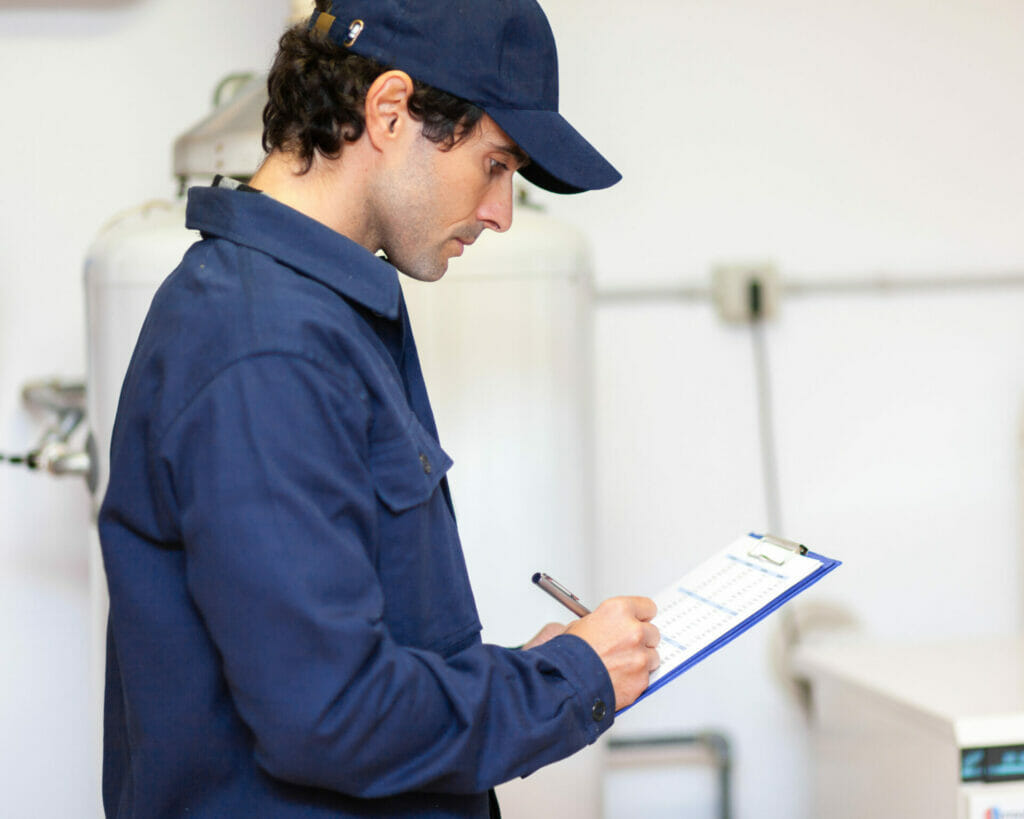
Regular maintenance is the key to keeping your plumbing system in tip-top shape and your home running smoothly. Think of it as giving your plumbing a little TLC on a regular basis to prevent any major issues from sneaking up on you.
Just like you have a routine for changing the oil in your car or cleaning out the gutters, your plumbing system deserves some scheduled love too! A plumbing maintenance schedule will help you stay on top of those tasks that make a big difference.
Set reminders for checking faucets, toilets, and exposed pipes for leaks or signs of wear. Regularly clean your drains and test your water pressure. These simple maintenance tasks can help you catch problems early and keep your plumbing system humming along smoothly.
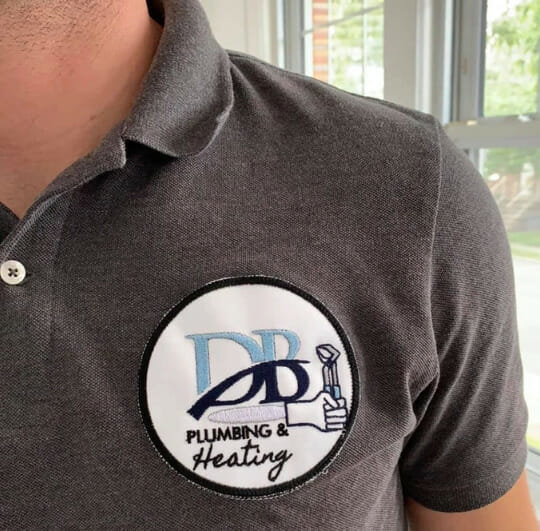
Now, here's where the pros come into play – bringing in a licensed plumber for an annual inspection. They are experts and know exactly what to look for. During an annual inspection, a plumber will check your entire plumbing system, including hidden pipes, for any signs of trouble.
They'll ensure that everything is working correctly and identify potential issues before they become major headaches. Think of it as an investment in the health of your plumbing – a little checkup can save you from bigger and costlier repairs down the road.
Regular maintenance is one way to save money in the long run. By catching and fixing small issues early on you’ll prevent them from turning into major and expensive problems. Fixing a small leak is much more budget-friendly than dealing with water damage and mold remediation.
So, whether it's establishing a plumbing maintenance schedule, bringing in a pro for an annual inspection, or reaping the cost-saving benefits, regular maintenance is a must for every homeowner. By giving your plumbing system the attention it deserves you'll ensure a comfortable and stress-free home environment that's protected from plumbing woes.
Let's get to the bottom of those mysterious plumbing odors that sometimes invade our living spaces. Unpleasant smells can really put a damper on the atmosphere, but fear not – we'll troubleshoot and tackle these odors head-on. From identifying the common culprits to DIY remedies and when it's time to call in the pros, we've got you covered.
Plumbing odors can be quite the puzzle, but they often have specific telltale signs. A common culprit is a stinky sink, which could be due to a buildup of food debris or grease in the kitchen drain. Another source of funky smells might be a dry P-trap in your bathroom.
The P-trap is that U-shaped pipe beneath your sink or shower that holds water to prevent sewer gasses from entering your home. If the P-trap dries out, those unpleasant odors can sneak up on you. Sewer gas odors might be an indication of a damaged or clogged sewer vent pipe or other issues with your sewer line. Identify these plumbing-related odors and you are one step closer to getting rid of them.
For milder plumbing odors you can try some DIY remedies to freshen up your home. For smelly kitchen sinks, try running hot water down the drain and pouring a mixture of baking soda and vinegar to break down any gunk. Refresh the P-trap by running water and filling it with a bit of vegetable oil to prevent evaporation.
You can also tackle unpleasant bathroom odors by pouring a cup of bleach down the toilet and flushing it. Remember, always be cautious when using any cleaning agents, and avoid mixing chemicals that can create harmful fumes.
If you've tried DIY remedies and those pesky odors just won't budge, it's time to bring in the professionals. Persistent plumbing odors might be an indication of more significant issues, like a blocked sewer line or vent pipe.
A licensed plumber will have the expertise and tools to pinpoint the exact cause of the odors and provide effective solutions. They can also conduct a thorough inspection of your plumbing system. This is to ensure everything is in working order and odor-free.
By identifying plumbing-related odors, trying out some DIY remedies, and knowing when to call in the pros, you'll be a pro at troubleshooting plumbing odors. Say goodbye to those pesky smells and hello to a fresh and cozy home! Stay tuned for more expert tips to keep your plumbing in tip-top condition.
Plumbing emergencies can catch us off guard, but being prepared and knowing what to do can make all the difference in these critical moments. Let's dive into the steps you should take during a plumbing emergency, including how to shut off the water supply and gas the importance of staying calm, and keeping safety a top priority.
First things first, don't panic – you've got this! The most crucial step during a plumbing emergency is to quickly assess the situation. Identify the source of the problem, whether it's a burst pipe, a major leak, or a flooded area.
If the situation is severe and beyond your DIY skills, don't hesitate to call for professional help immediately. Time is of the essence in a plumbing emergency, so acting fast is essential.
Knowing how to shut off the water supply and gas can prevent further damage and ensure everyone's safety. Locate your home's main water shut-off valve and turn it clockwise to stop the water flow. This will halt any further flooding or leaks.
If you smell gas or suspect a gas leak, leave your home immediately and call your gas company or emergency services. Avoid using any electrical devices or open flames while in the area. Gas leaks are serious and require immediate attention from professionals.
In the midst of a plumbing emergency, it's essential to keep a cool head and prioritize safety above all else. Gather your family members and pets to a safe location away from the affected area. Be cautious about slippery floors and potential electrical hazards due to water exposure.
Avoid trying to fix the issue if it's beyond your expertise – instead, let the professionals handle it. Taking safety precautions and staying calm can help you navigate through the emergency without further complications.
Remember, plumbing emergencies can be stressful, but knowing what to do can make all the difference. Stay prepared by knowing how to shut off the water supply and gas, and always prioritize safety for you and your loved ones. Don't hesitate to call for professional help in critical situations. With a level head and a focus on safety, you'll be better equipped to handle any plumbing emergency that comes your way.
Congratulations! You are now equipped with the knowledge and skills to tackle common plumbing issues and handle emergencies like a pro. Understanding your plumbing system and identifying early signs of trouble are essential steps in maintaining a cozy and stress-free home. Remember to prioritize regular maintenance, as it can save you money and prevent major plumbing headaches down the road.
DIY repairs can be rewarding and cost-effective for small tasks like fixing leaky faucets and unclogging drains. However, knowing when to call in a licensed plumber is equally important. For more complex issues, like burst pipes, water heater problems, or sewer line blockages, professional assistance makes sure the job is done safely and efficiently.
By adopting eco-friendly plumbing practices, such as water conservation techniques, and choosing eco-conscious fixtures, you'll not only save money on water bills but also contribute to a greener environment. And when dealing with plumbing odors, identifying their source and trying DIY remedies can work wonders, but persistent smells may require professional solutions.
Remember, plumbing is an integral part of your home's functionality, providing clean water and sanitation for your daily needs. With your newfound knowledge, you can confidently handle plumbing challenges, transforming them into moments of triumph and ensuring your home remains a haven for years to come.
So, let's keep those faucets leak-free, toilets running smoothly, and drains flowing freely as we embark on this plumbing adventure together.
Stay tuned for more expert tips to make your cozy home even cozier!
54 Brookline Ave
Nutley, NJ
07110
973-337-9916
